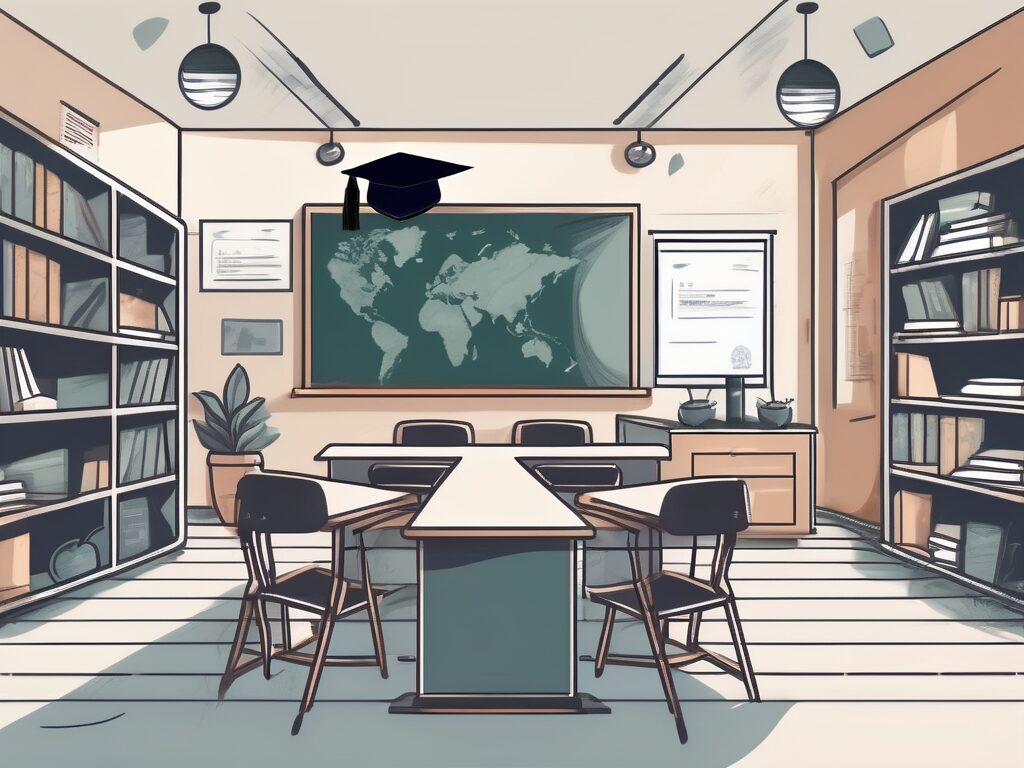Singapore, a vibrant and multicultural city-state, is renowned for its high-quality education system. However, as a teacher with a Master’s degree in Education, you may encounter a few cultural barriers that could impact your teaching experience. This blog post will delve into five examples of such barriers, offering insights and suggestions for overcoming them.
1. Language Barrier
Understanding Singlish
While English is one of the official languages in Singapore, locals often converse in a unique creole known as Singlish. This language, a blend of English, Malay, Tamil, and various Chinese dialects, can be challenging for foreigners to understand. As a teacher, this could pose a problem when communicating with students and their parents.
Overcoming this barrier involves patience and a willingness to learn. Engaging with local culture, watching local television shows, and interacting with Singaporeans can help you pick up Singlish phrases and nuances. Remember, it’s not about mastering Singlish but about understanding enough to communicate effectively.
2. High Expectations for Academic Achievement
The Pressure to Succeed
Singapore’s education system is known for its rigour and high academic standards. Students face immense pressure to excel, often from a young age. As a teacher, you may find yourself caught between the need to maintain these high standards and the desire to foster a less stressful learning environment.
It’s crucial to strike a balance. While it’s important to push students to reach their potential, it’s equally important to ensure their mental and emotional well-being. Encouraging open communication, promoting a growth mindset, and incorporating stress management techniques into your teaching can help alleviate some of this pressure.
3. Hierarchical Culture
Respect for Authority
Singaporean society is largely hierarchical, with a strong emphasis on respect for authority. This can manifest in the classroom, where students might be hesitant to question or challenge their teachers. While this can lead to a disciplined and orderly classroom, it may also stifle creativity and critical thinking.
Creating an inclusive and open classroom environment can help break down these barriers. Encourage students to voice their opinions and questions, and make it clear that their thoughts are valued. This can help foster a more dynamic and engaging learning experience.
4. Racial and Religious Diversity
Navigating Differences
Singapore is a melting pot of different races and religions. While this diversity is one of the country’s strengths, it can also lead to misunderstandings and conflicts in the classroom. As a teacher, it’s important to be aware of these differences and to promote a culture of respect and understanding.
One way to do this is by incorporating multicultural education into your curriculum. This can involve teaching about different cultures and religions, celebrating various cultural festivals, and promoting open discussions about race and religion. This can help students understand and appreciate their peers’ diverse backgrounds.
5. The Influence of Technology
Embracing Digital Learning
Like many other countries, Singapore has embraced technology in education. However, this shift towards digital learning can be a challenge for teachers who are more accustomed to traditional teaching methods. It’s important to stay updated with the latest educational technologies and to be flexible in adapting to these changes.
Fortunately, there are many resources available to help teachers navigate this digital landscape. Online courses, webinars, and workshops can provide valuable insights and skills. Remember, the goal is not to become a tech expert overnight, but to become comfortable enough with technology to enhance your teaching and your students’ learning experience.
In conclusion, while there are cultural barriers in Singapore’s education system, they are not insurmountable. With patience, understanding, and a willingness to adapt, you can navigate these challenges and create a positive and effective learning environment for your students.
Advance Your Teaching Career with The IQTS at UWE
As you navigate the cultural barriers in Singapore’s education system, consider enhancing your professional development with the International Qualified Teacher Status (iQTS) Programme at UWE. Overcome the challenge of strict qualification requirements and become part of the 50% who see increased interview callbacks. With the iQTS, you’re not only preparing for international roles but also accelerating your career progression, with a 45% increase in promotion rates and a 30% salary boost. Join a thriving community of educators, expand your professional connections, and gain a solid understanding of international curricula. Embrace the flexibility of online study options tailored for working teachers, and make yourself 65% more adaptable in global education systems. Make Your Next Step towards a fulfilling teaching career with the iQTS programme.

